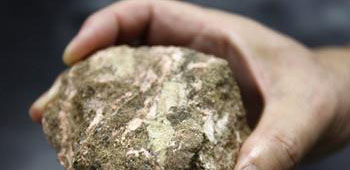A World Trade Organization panel ruled that China violated the organization's membership obligations by restricting exports of rare earths, tungsten and molybdenum, the WTO said Wednesday.

The ruling is expected to increase the availability of these commodities, which are used in steel, automobiles, the defense industry, wind turbines and other manufacturing sectors.
Following a dispute the US filed in cooperation with the EU and Japan in 2012, the WTO consulted with China and found that China restricts exports of rare earths, molybdenum and tungsten using duties, export quotas and limitations on authorized exporting enterprises.
"China's decision to promote its own industry and discriminate against US companies has caused US manufacturers to pay as much as three times more than what their Chinese competitors pay for the exact same rare earths. WTO rules prohibit this kind of discriminatory export restraint and this win today, along with our win two years ago in an earlier case, demonstrates that clearly," US Trade Representative Michael Froman said in a statement.
The US alleged that China's export duties are inconsistent with the country's accession protocol to the WTO. China argued the export duties protect the health of people and wildlife from pollution caused by mining the materials, but the dispute panel found this inconsistent with WTO obligations, according to the WTO's summary of the case.
China also argued that its export quotas placed on rare earths, molybdenum and tungsten were to preserve an "exhaustible natural resource," but the dispute panel did not agree.
The panel "found that China's export quotas were designed to achieve industrial policy goals rather than conservation," according to a summary of the dispute.
China argued for its restrictions of the right of enterprises to export rare earths and molybdenum on similar grounds relating to conserving natural resources, which the WTO also found breached trade obligations.
Alan Price, partner and chairman of the International Trade Practice at Wiley Rein, said in a statement "this decisive ruling by the WTO confirms that China cannot impose export quotas, export taxes and other restrictions on these raw materials."
The law firm, which worked with the USTR on the case, urges China to comply with this decision and lift the "trade-distortive export restrictions."
American Iron and Steel Institute President Tom Gibson said "this is yet more proof that China deliberately evades its obligations as a WTO member. The Chinese government knew in 2001 when it joined the WTO that it could not impose export quotas on these elements, and it did so anyway."





